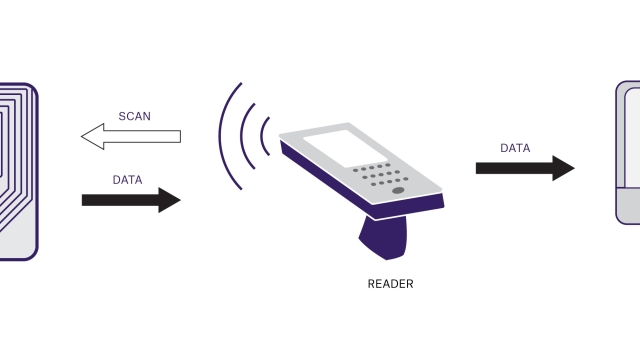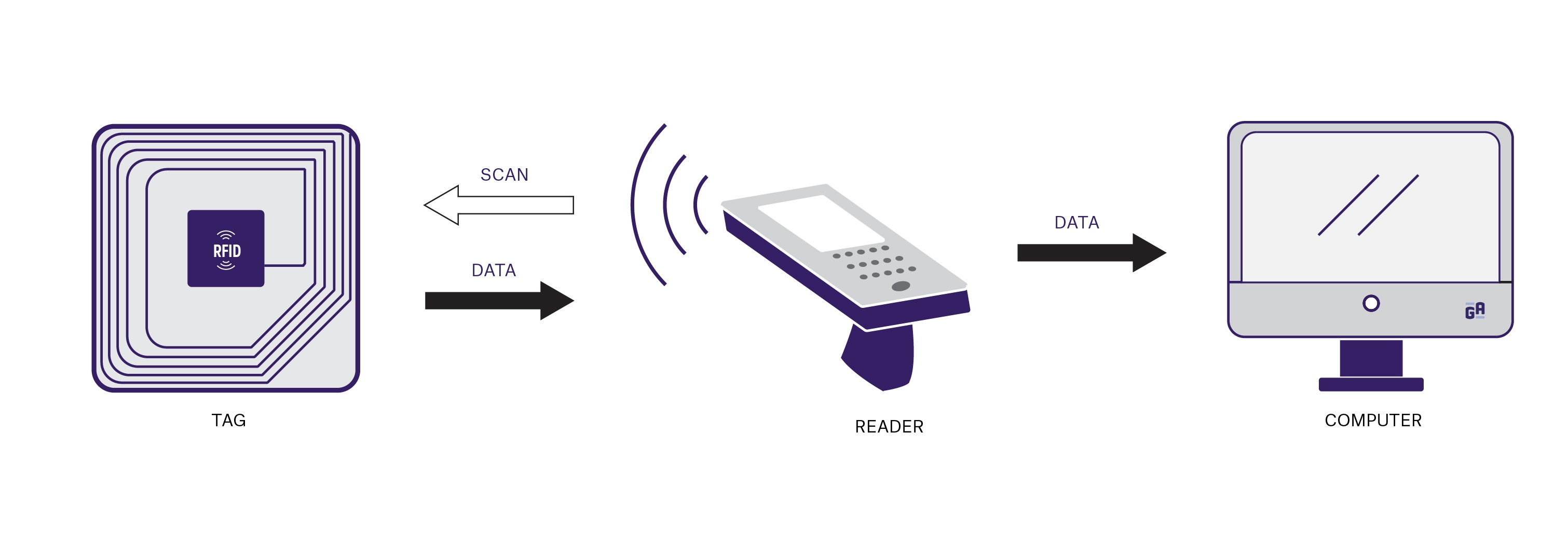
Unlocking the Futuristic Potential of RFID Technology
In today’s fast-paced world, technological advancements continue to drive innovation across various industries. One such technology that has made significant strides is RFID, which stands for Radio Frequency Identification. Developed as a means of automatically identifying and tracking objects, RFID has evolved into a futuristic solution with immense potential.
At its core, RFID technology utilizes radio waves to communicate between a tag or label attached to an object and a reader that captures the information stored within. Unlike traditional barcodes, which require direct line-of-sight scanning, RFID enables seamless and non-contact data transfer. Incorporating microchips and antennas, RFID tags are embedded with unique identifiers that can be read wirelessly, making the process of identification and tracking more efficient and convenient.
The use cases for RFID technology span vast and diverse industries, from inventory management and supply chain logistics to healthcare and transportation. In retail, for instance, RFID enables accurate and real-time inventory tracking, simplifying stock management and replenishment processes. In healthcare, RFID can assist in medication management by ensuring accurate tracking and monitoring of drug inventory, reducing errors and improving patient safety. In transportation and logistics, RFID helps streamline the tracking and traceability of goods, optimizing supply chain operations.
As RFID technology continues to advance, it promises even greater potential for the future. Innovations such as passive and active RFID tags with increased storage capacity, longer read ranges, and improved durability are on the horizon. Additionally, the integration of RFID with other emerging technologies, such as the Internet of Things (IoT) and Artificial Intelligence (AI), will further enhance its capabilities and impact.
With its ability to provide real-time visibility, secure identification, and efficient tracking, RFID technology is unlocking a myriad of possibilities across industries. As businesses and organizations recognize its benefits, the adoption of RFID is expected to grow steadily. The futuristic potential of RFID is immense, offering a glimpse into a connected world where objects seamlessly communicate and respond to our needs.
Benefits of RFID Technology
Increased Efficiency
RFID technology offers a range of benefits that can greatly improve efficiency in various industries. One notable advantage is the ability to automate and streamline inventory management. With RFID tags attached to products or assets, businesses can quickly and accurately track the location and movement of their inventory, leading to more efficient supply chain processes. This technology eliminates the need for manual counting or scanning, reducing human error and saving valuable time.
Enhanced Security
Another key benefit of RFID technology is its ability to enhance security measures. RFID tags can be utilized for access control, allowing authorized personnel to enter restricted areas. The tags can also be embedded in valuable assets, making it easier to track and prevent theft or unauthorized removal. Additionally, RFID scanners can detect counterfeit products or identify tampering, providing an added layer of security for businesses and consumers alike.
Improved Customer Experience
RFID technology can significantly improve the customer experience by enabling seamless and efficient interactions. For instance, in the retail industry, RFID tags can be used to create a more streamlined and personalized shopping experience. Customers can simply walk through checkout points without having to individually scan each item, resulting in faster and more convenient transactions. This not only increases customer satisfaction but also reduces waiting times, leading to higher overall efficiency for businesses.
The benefits of RFID technology extend beyond these examples, offering immense potential for a wide range of industries. By leveraging this technology, businesses can optimize their operations, enhance security measures, and improve customer satisfaction, ultimately unlocking a more futuristic and efficient future.
2. Applications of RFID Technology
In today’s increasingly connected world, RFID technology is finding widespread application across various industries. Primarily used for identification and tracking purposes, RFID systems offer a range of benefits that streamline operations and enhance efficiency.
Supply Chain Management: With RFID technology, businesses can revolutionize their supply chain management processes. By attaching RFID tags to inventory items, companies gain real-time visibility into their stock levels, enabling them to track goods throughout the entire logistics process. This enhances inventory accuracy, reduces stockouts, and enables faster and more accurate order fulfillment.
Retail and Inventory Management: RFID technology has propelled the retail industry forward by providing a more efficient and accurate way to manage inventory. By deploying RFID tags on individual products, retailers can automate inventory tracking, reduce manual errors, and optimize stock replenishment. Such automation leads to improved inventory accuracy, lower carrying costs, and enhanced customer satisfaction through consistent availability of products.

Asset Tracking: RFID offers a robust solution for tracking assets within organizations, such as equipment, vehicles, and important documents. By attaching RFID tags to these assets, businesses can easily monitor their location, movement, and usage, eliminating the time-consuming and error-prone manual tracking methods. This streamlines asset management, reduces loss, and facilitates quick retrieval when needed.
In conclusion, RFID technology has unleashed a world of possibilities across multiple sectors. Its applications in supply chain management, retail, and asset tracking have transformed traditional processes, enabling organizations to operate more efficiently, reduce costs, and make data-driven decisions. Embracing the potential of RFID technology promises a future where systems and operations are seamlessly integrated, bringing us closer to the next level of connectivity and automation.
3. Future Development of RFID Technology
With the continuous advancements in technology, the future of RFID holds immense potential for further innovation and development.
RFID tags
Enhanced Efficiency and Accuracy: In the coming years, we can expect RFID technology to become even more efficient and accurate. This means that tag reading speeds will improve, allowing for faster and more reliable data collection. Additionally, advancements in tag design will lead to enhanced read range and improved accuracy, even in challenging environments.
Integration with IoT: As the Internet of Things (IoT) continues to expand, RFID technology will play a crucial role in connecting physical objects to the digital world. RFID tags will be integrated into various devices, enabling real-time monitoring and seamless data exchange. This integration will unlock new possibilities in sectors such as logistics, supply chain management, and asset tracking.
Miniaturization and Cost Reduction: Over time, we can expect RFID tags to become smaller and more cost-effective. This will enable their integration into a wider range of products and applications. The miniaturization of RFID tags will also pave the way for embedding them in everyday objects, such as clothing, enabling seamless identification and interaction with our surroundings.
As we look towards the future, the potential for RFID technology is truly exciting. From improved efficiency and accuracy to seamless integration with IoT and miniaturization breakthroughs, the possibilities are endless. By unlocking this futuristic potential, RFID technology is set to revolutionize various industries and enhance our daily lives in ways we could have never imagined.




